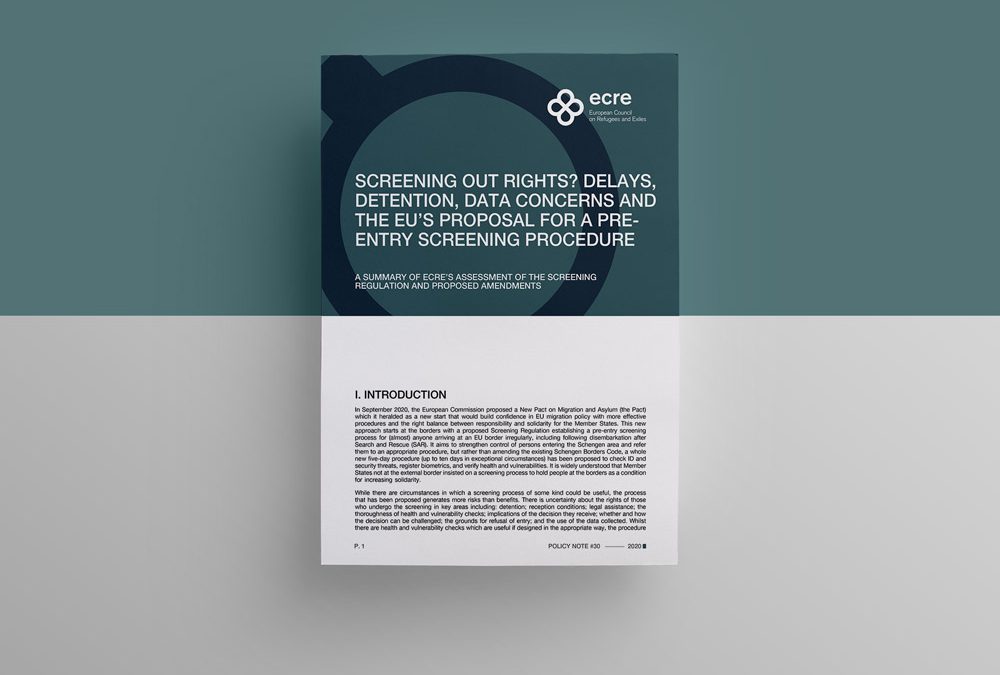In this Policy Note ECRE offers a summary of its assessment of the Screening Regulation COM(2020) 612 and proposed amendments.
In September 2020, the European Commission proposed a New Pact on Migration and Asylum (the Pact) which it heralded as a new start that would build confidence in EU migration policy with more effective procedures and the right balance between responsibility and solidarity for the Member States. This new approach starts at the borders with a proposed Screening Regulation establishing a pre-entry screening process for (almost) anyone arriving at an EU border irregularly, including following disembarkation after Search and Rescue (SAR). It aims to strengthen control of persons entering the Schengen area and refer them to an appropriate procedure, but rather than amending the existing Schengen Borders Code, a whole new five-day process or procedure (up to ten days in exceptional circumstances) has been proposed to check ID and security threats, register biometrics, and verify health and vulnerabilities. It is widely understood that Member States not at the external border insisted on a screening process to hold people at the borders as a condition for increasing solidarity.
While there are circumstances in which a screening process of some kind could be useful, and certain health and vulnerability checks are essential, the proposal as it stands generates more risks than it provides benefits. Notably, there is significant uncertainty about the rights of those who undergo the screening process for key elements including: use of detention; reception conditions; legal assistance; the thoroughness of health and vulnerability checks; implications of the decision they receive; whether and how the decision can be challenged; the grounds for refusal of entry; and the use of the data collected.
The screening process will also entail more-or-less systematic detention at the border, which the Regulation omits to mention. Neither does the Regulation foresee adequate appeal rights for the persons concerned. The screening is also to be applied to people inside the territory of a Member State under some circumstances, creating the risk of an increase in discriminatory law enforcement. This will all mean considerable resources on the part of the Member States and the EU. A positive element is an independent border monitoring mechanism to monitor violations of fundamental rights at EU borders, long overdue given frequent reports of pushbacks and violence.
In summary, the added value of the Screening Regulation is unclear, also given the potential duplication with checks included in the Schengen Borders Code, but there are clearly high human and financial costs. For these reasons, ECRE believes the Screening Regulation should be withdrawn, apart from the independent border monitoring mechanism, which should be strengthened and developed as a stand-alone mechanism. In the case that the Screening Regulation moves forward in the legislative process, ECRE provides a list of nonexhaustive, minimum safeguards and conditions that should be added to ensure people’s rights are upheld during the screening process.
For more detailed information: please read ECRE’s Comments on the Commission Proposal for a Screening Regulation COM(2020) 612.

